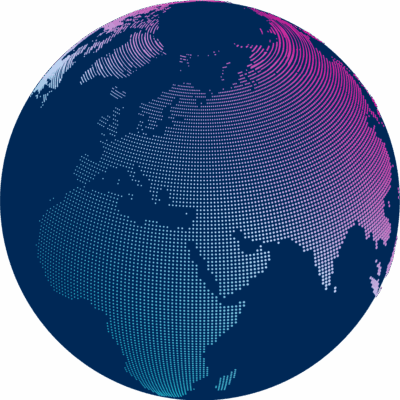Bringing MIT to the world, and the world to MIT
For almost anyone anywhere familiar with higher education, MIT is a known and respected entity. Its reputation for leadership, innovation, and discovery is recognized around the globe. Perhaps less obvious – but equally remarkable – is how the world itself is represented across campus. With alumni hailing from 149 nations and nearly 50 percent of faculty born outside the US, the world is truly at MIT.
Just as the United States has prospered through its ability to draw talent from every corner of the globe, so too has MIT thrived as a magnet for the world’s most keen and curious minds — many of whom remain here to invent solutions, create companies, and teach future leaders, contributing to America’s success.
“The World at MIT” videos underscore MIT’s distinctive nature as a community that is at once profoundly American and deeply connected to the world. In brief, three-minute interviews, faculty members recount how and why they came to adopt MIT as their professional home.
The World at MIT
Watch and hear highlights from interviews with the international faculty featured in “The World at MIT” video series.
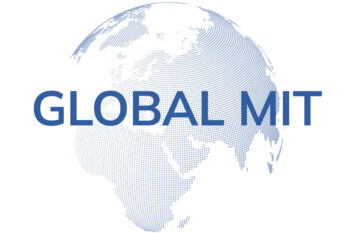
Daron Acemoglu – Turkey
Drawn to politics growing up in the wake of a military coup, Daron Acemoglu’s passion is “understanding long-term economic growth and thinking about the role of technology.”
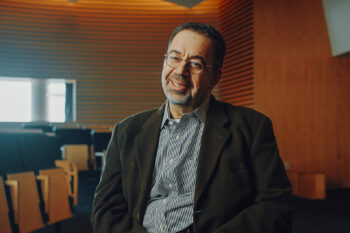
Sana Aiyar – India
While not widely known for its History Department, once Aiyar joined it, “I realized we have the best historians in the country and, in fact, from across the world here”.
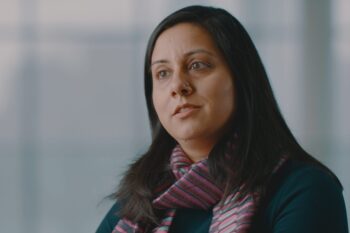
Tayo Akinwande – Nigeria
“I’ve always been fascinated by what’s the problem I’m solving and what difference does it make?” says Tayo Akinwande, adding that he learns from his students in each class.
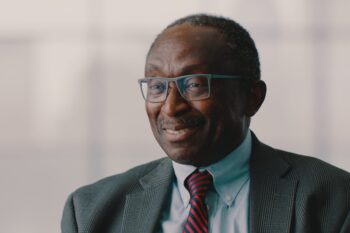
Regina Barzilay – Israel
What makes MIT special, Regina Barzilay says, is having “so many brilliant people around you” across all ages. “These students who come here, they’re ready to change the world.”
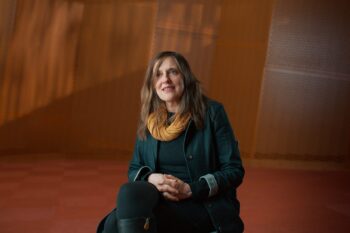
Moungi Bawendi – France/Tunisia
Moungi Bawendi says MIT’s “very collegial, very collaborative” environment and his “bold, smart, adventurous graduate students” were key to his winning a Nobel Prize.
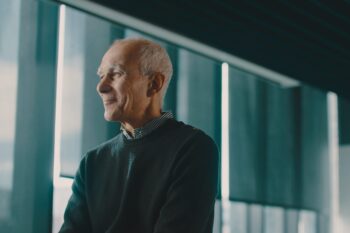
Eric Grimson – Canada
MIT is “an intense place,” Eric Grimson says, but also “a friendly place…a place where people work together, where you find colleagues who help you think through a problem.”
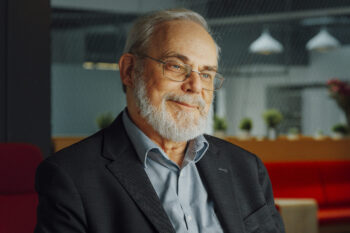
Mai Hassan – Sudan
Mai Hassan helps students see links between tactics and strategies used by authoritarian regimes and the responsibilities of those who develop AI and other technologies.
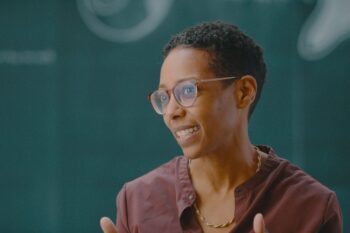
Yasheng Huang – China
Noting MIT’s work beyond science and engineering, Yasheng Huang hopes students gain “appreciation for the complexity, the multidimensionality of the many issues we face”.
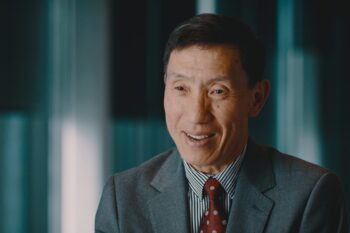
Pablo Jarillo-Herrero – Spain
“It’s the people that make this place great,” says Pablo Jarrillo-Herrero. “Most people are open-minded, happy to learn from others” and humble despite their accomplishments.
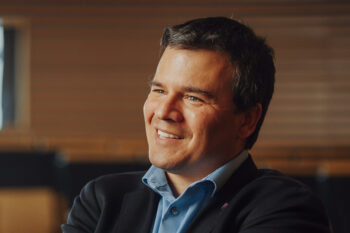
Ericmoore Jossou – Nigeria
Ericmoore Jossou tells his students he doesn’t see his research as a job, but “as a calling. When I get up every day, solving these problems is always what’s on my mind.”
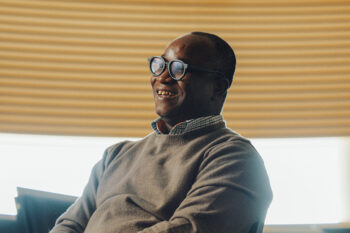
Paulo Lozano – Mexico
It’s students that make MIT “truly special”, says Paulo Lozano. He looks forward to talking with his students daily “because you’re always going to learn something from them.”
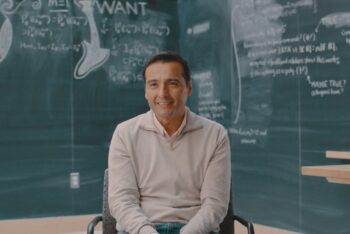
Pattie Maes – Belgium
For Pattie Maes, the Media Lab is about how cutting-edge technologies can improve lives. “What brings us all together is how smart technologies can be used to empower people.”
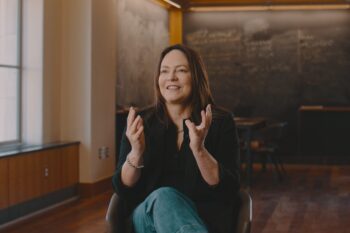
Nergis Mavalvala – Pakistan
Everyone at MIT uses their intellectual gifts and education to make the world a better place, “and I think that’s an amazing community to be part of,” Nergis Mavalvala says.
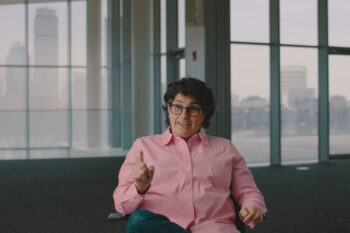
Fiona Murray – United Kingdom
“What MIT does so well,” Fiona Murray says, “is the thing that the world needs so desperately – the mind and hand, the thinking and doing, the practical genius, if you will.”
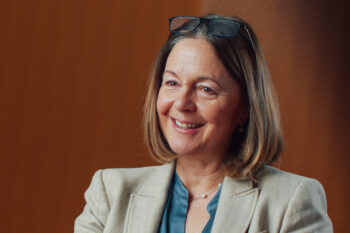
Raúl Radovitzky – Argentina
“We’re never satisfied with how we do things. We’re always revisiting what we do,” says Raúl Radovitzky. “We don’t take ourselves for granted and that’s very important.”
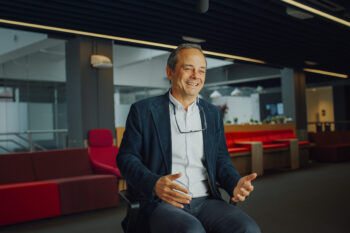
Rafael Reif – Venezuela
For Rafael Reif, the variety of cultures at MIT is its secret sauce. “There is no richer place, because every point of view is here. That is what makes the place so special.”
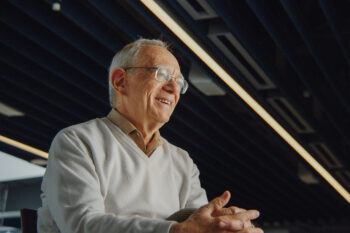
Roberto Rigobon – Venezuela
MIT’s diversity of disciplines and personal histories, Roberto Rigobon says, begets better ideas –intellect that gets “implemented with our hands with a purpose of service.”
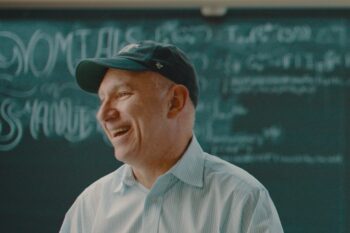
Daniela Rus – Romania
Keen for science’s practical side since her teens, Daniela Rus now gets daily inspiration “talking to my students and colleagues about how technology can make the world better.”
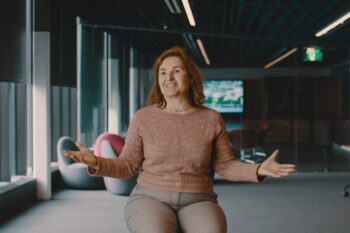
Hashim Sarkis – Lebanon
Tapping a lifelong love of buildings, Hashim Sarkis challenges his students with real-life design issues – “problems I don’t know how to solve but that I’m thinking about.”
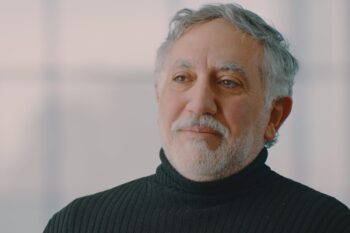
Yukiko Yamashita – Japan
“Every day, I am creating more mystery than I answer,” Yukiko Yamashita says. “I’m really looking forward to finding out more and more and more. That feeling doesn’t get old.”
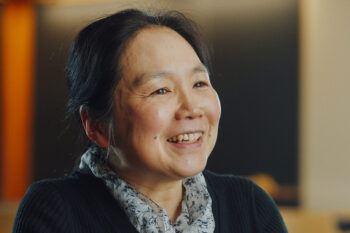
Kamal Youcef-Toumi – Algeria
MIT provides opportunities to work with global experts on solutions whose positive impacts are evident in the short term. “That is very rewarding,” says Kamal Youcef- Toumi.
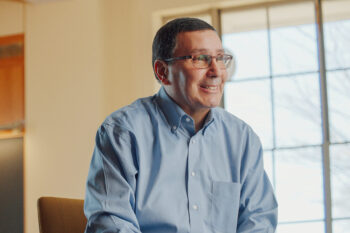
Both MIT and the United States grow stronger when we harness the talents of the world’s best and brightest.
Duane Boning, Vice Provost for International Activities.
